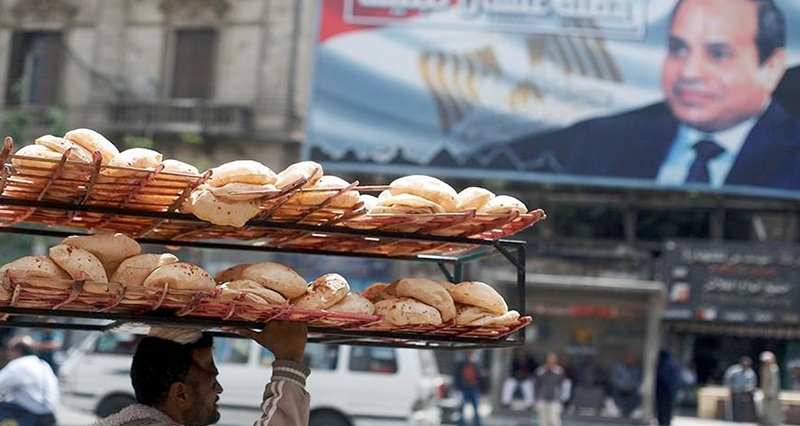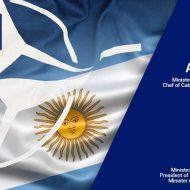Egypt, along with the rest of the world, is passing through a ring of fire.
The Egyptian economy, which has been on shaky ground for many years, is now openly on the brink of bankruptcy.
For the fourth time in the last six years, the Cairo government has had to knock on the door of the IMF.
But neither the IMF loans nor the hot money pouring in from the Gulf are enough to save the day in Egypt, which is grappling with a structural crisis.
Nails in the coffin of economy
After 2011, tourism revenues, one of the pillars of the Egyptian economy, were zeroed out. The ensuing pandemic was the nail in the coffin of tourism in Egypt.
In this process, the Cairo administration embarked on an agricultural reform, including the conversion of large state lands to agriculture and irrigation projects, but due to the unwieldiness of the state structure it was not very successful.
Likewise, the outlook for the textile-oriented light industry is not good.
Construction-based megaprojects including the new capital are far from changing the lives of a population, a third of which lives of only a few dollars a day.
The Ukrainian war that broke out in February 2022 was the final blow to Egypt.
Egypt, the world’s largest wheat importer, has been deprived of wheat due to the war. The problem in wheat imports has also hit the price of bread that is subsidized by the state.
Given the country’s history of popular uprisings linked to bread prices, Cairo’s urgent efforts to find a solution to the wheat problem are understandable.
In short, Cairo is faced with a country of 110 million inhabitants whose national currency has lost 50% of its value. Tourism revenues are deprived, agricultural reforms have failed and Egypt is slipping into a severe food crisis with its streets and cafes simmering unrest…
Everyone has a balance policy
The West-East crisis, crystallized by the Ukraine war, has restricted the possibilities of maneuver in foreign policy for the Cairo administration, which has been pursuing a “policy of balance” within its capabilities.
Egypt, cooperating with Russia in wheat and nuclear energy, has to wait for directives from the US being at the door of the IMF…
In this context, it should be noted that the “balance policy”, which is considered as “a sign of a transition to an independent foreign policy”, is not unique to Türkiye, but a policy that every country that tries to keep distance from imperialism follows within its own capabilities and limits.
These policies, which are the result of the world’s move towards multipolarity, are dictated by circumstances rather than the conscious decision of the politician, so it is questionable how accurate it is to characterize those who follow these policies as “anti-imperialist”…
Back to Egypt…
The Economist, voice of the IMF, writes that Egypt can only get out of the crisis if the military takes its hands off the economy.
However, in a country like Egypt, which lacks the tradition of civilian politics and institutionalized structures, it is doubtful whether the so-called “state” would persist if the military disengages from politics and the economy.
One of my friends who is closely observing the streets of Egypt summarizes the dilemma his country is going through as follows:
“The situation in Egypt is terrible. In 2011, Egyptians thought the problem was the Mubarak regime… Now the masks came off. They think the problem lies with the wing within the military that holds power. While Mubarak was being overthrown, slogans like ‘people-army hand in hand’ were being shouted in the streets. What slogan are we going to shout now? We need another song…”
When asked if the Egyptian people have any expectations from the army, he replied: “The people are aware that only the army can manage a transition process… Everyone knows that there is no solution without the army. But it is also obvious that it will not continue like this. The US is doing its utmost to prevent the establishment of culture of democracy in Egypt. We need to move away from the US…”
It seems that the war in Ukraine shattered the pillars of the old world in an irreversible way.
And in a yet unnamed new situation, the “Mother of the World” is looking for her place in Egypt.
The question Egyptians continue to debate is now common knowledge: A military-centered Egypt? Or a new state structure?









Leave a Reply